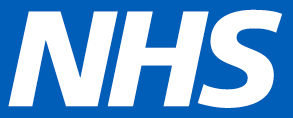How Dora AI supported services in reducing the wait time for patient follow-ups, facilitating improved cataract service provisions, reducing waiting times and freeing up clinical capacity.
What was the context that led to this workstream?
The Region (NHS England South East ‘NHSE SE’) has a high volume of cataract surgeries with around 23,000 patients undergoing surgery each year across the region. Increasing demand, paired with the delays and backlogs due to COVID-19, meant that cataract capacity, pathways and waiting lists were under pressure. Some Trusts were unable to provide cataract follow-up or Patient Initiated Follow Up (PIFU) either in the hospital or community, whilst others were unable to do so within recommended timescales. Similar challenges were faced for pre-op appointments, so there was a need to improve patient flow, experience and waiting times.
What did you do?
Initially, four sites across Buckinghamshire, Oxford and Berkshire and Frimley implemented Dora AI to assess the improvements from using the tool. Due to the benefits, Dora was then deployed across the cataract pathway at six Trusts in the Region.
What does Dora do?
Dora is, a UK standards-approved artificial intelligence clinical voice assistant aimed at increasing healthcare capacity for cataract pre-op assessments and Patient Reported Outcome Measures (PROMs) collection. Dora works by telephoning patients and conducting automated clinically validated consultations. Patients have a voice phone conversation and Dora can understand patients’ symptoms, answer their questions and recommend clinical decisions. Patients with concerns that are not possible to manage using Dora are called by the clinical team.
What has been the impact?
- Waiting lists have reduced from 5-8 weeks to 0 and backlogs cleared within weeks at some trusts.
- Freeing clinician time and increasing capacity, NHS Frimley reported a 66% reduction in clinician-led follow-ups. This is reiterated across other trusts which report an average reduction of 64%.Time has also been saved on pre-op screening and assessments.
- Improved equity of access and reduced referrals to community optometry services.
- Reducing health inequalities and risk as clinicians can now concentrate on those patients requiring more complex clinical input.
- Staff can work at the top of their licence and have reported improved staff satisfaction and morale.
- Increased social value and reduction in CO2 emissions – one site has saved carbon emissions equivalent to 26,000 travelled patient miles.
What has been the cost?
The project had two initial funding streams: Small Business Research Institute (SBRI) and NHSE SE to support the spread to the six Trusts. The current return on investment is 1 to 3.
What are your top tips based on your learning from this work stream?
Lead with passion. We had clinically led pathway redesign and improvement work that was championed by Executive leadership.
Gather, involve and enable a multi-disciplinary team (MDT). We had a team with diverse expertise and experiences including medical, nursing, admin, management, technical (IT and Digital), specialist leads (procurement, IG, clinical safety) and the AI supplier. The right people involved at the right time is key.
Consider your AI solution as being part of your MDT. Embrace and embed it as part of standard processes to support and get the most benefits for your workforce.
Understand your pathways. Involve the MDT to map out your end-to-end patient pathway and use this to design your change, make improvements and engage those involved or impacted by the changes.
Understand clinical variation. Use data to identify variation and use this as a driver, and measure, for success.
Want to know more?
Then please
Dora AI was supplied by Ufonia Ltd. For questions, please



